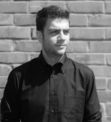Elliott Hall's Blog, page 2
October 30, 2013
Altered Carbon by Richard K. Morgan

My rating: 4 of 5 stars
How have I not read this book before? The cyberpunk, the noir, and meticulous fight scenes all convince me Morgan and I’s teenage brains were marinated in very similar sauces. Fully-built worlds have been a bee in my bonnet lately, and here Morgan really succeeds: he takes the idea of consciousness being as transferable as any smartphone app and extends out the implications as far as they can go. All the permutations of data are included in interesting ways: copying, duplication, corruption and indefinite storage of the program called consciousness. A particular favourite was the method of torture of leaving someone in virtual reality with multiple copies of themselves until the existential dread cracks them open.
I’d say my only reservation is the Envoys, the interstellar ninjas the protagonist Takesi Kovacs was a part of. I understand keeping their ‘powers’ deliberately vague, but they seemed only to serve the immediate needs of the plot rather than have any real coherence. What Morgan does reveal of their work I found more intriguing than the main plot of the actual book. I wanted to read a book about life as an Envoy, what it would be like to be constantly moving from body to body and world to world, adapting and readapting but having no permanent body of your own.
View all my reviews
October 18, 2013
Capital by John Lanchester
My rating: 3 of 5 stars
Capital is entertaining, deft and very readable; it is no surprise it was so popular. I hit the first half of this book hard, enthralled by the many characters and the memory of living through that strange, property-mad time of 2007.
Yet as I headed into the second half I found attention waning. It was still very readable and fun, but I cared less and less about what was going on. His characters are all well-realised (the fact that I merely found the City banker and his wife, the Younts, hilarious rather than wanting to set them on fire is a tribute to his characterisation.) However the 18th-century panoramic style Lanchester employs means you never spend enough concentrated time with any particular character to care deeply about their lives. By the time I got to the end I had viewed everything from that mile-high perspective for so long I wasn’t invested that much in how it ended, or what he was trying to say. A novel that was unfortunately less than the sum of its parts.
View all my reviews
October 4, 2013
China Miéville’s Railsea
 Railsea by China Miéville
Railsea by China Miéville
My rating: 3 of 5 stars
Railsea was a book I admired more than loved. Miéville impresses, as always, with the sheer scope of his invention. What I think is often overlooked is that he applies that same inventiveness all the way down, to the little details of daily life. So in Railsea we not only have the mechanics of the great mole train and descriptions of a vast iron-covered desert teeming with hidden carnivores. We also get refrences to cities and societies all over the Railsea, drinks and food, each individually almost a throwaway but adding up to the feeling of a vast world going on outside the confines of the story. It’s world building in the best sense of the term.
So why did I recognise the technical achievement more than enjoy the story? In between the main narrative are essentially mini-essays on storytelling and narrative, meta from both barrels. I found it jarring and unnecessary, when the power of rumour and story was already baked right into the narrative. Miéville invited me to distance myself from his own story, to consider it as much as a theoretician as a reader, so I did.
View all my reviews
August 30, 2013
Syria and the end of the of the age of ‘Doing Something’
Ever since Cameron lost the Syria vote yesterday evening, much has been made about the shadow of Iraq, and rightly so. Those who will decry this vote as the end of interventionism are wrong. It was one of its chief proponents, Tony Blair, who put that doctrine into a grave in Baghdad.
What died last night was intervention’s weaker cousin: ‘Doing Something.’ Cameron failed because he thought if he focused on the horror of what had happened in Damascus, he wouldn’t be questioned on what exactly we could do about it. The need to respond to the atrocity would be so strong, the response itself would be almost peripheral. Instead, parliament quite sensibly asked what our objectives were, and what the after effects of dropping yet more bombs in the Middle East would be.
That is the true legacy of Iraq, that these question can be asked without fear. When doubts were raised about the weapons programs of how the invasion would go, they were silenced by accusations that any opposition was objectively pro-Saddam. Some of the cabinet tried to play the same disgusting game last night and it blew up in their faces. Cameron’s own party was unconvinced, let alone the country at large.
The fact is that our options for making a real difference in Syria are extremely limited. Establishing a no-fly zone would require a large campaign against modern air defenses, some of which might be manned by Russian personnel. A ground invasion is out of the question, as is close support of insurgents, many of whom are the very Jihadists that we’re supposed to fighting that other war against.
What was effectively on the table last night was a few cruise missile strikes of the kind Clinton launched against Hussein in the 90s. They would accomplish no military objective and not seriously weaken Assad, but they would show we had done something. It would be the geopolitical equivalent of a spanking, at a million or so per Tomahawk slap.
Parliament decided last night that launching missiles was a poor way to make the images on our television easier to stomach. Let’s hope we find a better solution.
August 23, 2013
Review of Swiftly by Adam Roberts
 Swiftly by Adam Roberts
Swiftly by Adam Roberts
My rating: 3 of 5 stars
Continuing the world of Gulliver’s Travels into the Victorian era seems like such a natural idea I’m surprised no one has done it before. Roberts neatly fits Gulliver’s new world into the narrative of empire, another land to be conquered and used alongside so many others. The Lilliputians are slave artisans, building impossibly tiny Steampunk devices with the precision machines at that time could only dream of. The Brobdingnagian are nearly exterminated by the Royal Navy, and ally with the French.
Adam Roberts gets a lot of credit in my book for not stopping there. Instead he takes Swift’s premise of big and little and pushes it out in both directions, below the naked eye and out into space. The result is a fascinating idea, even if I don’t think it quite succeeded as a novel.
(view spoiler)[
There are a lot of great scenes in the book: the plague coming to Scarborough and the fall of London come to mind. However I think Roberts goes down a bit of a philosophical rabbit hole at the end with the Battle of York. The ideas overwhelm the narrative, and after a while I became disconnected from the characters. I admit there was also a bit more fecalphilia than I am usually up for in a book.
(hide spoiler)]
Swiftly is daring, creative, but in dire need of a firmer narrative hand.
View all my reviews
July 29, 2013
Dark Eden by Chris Beckett
 Dark Eden by Chris Beckett
Dark Eden by Chris Beckett
My rating: 4 of 5 stars
It’s often said of SF that it is always, or should always, be a reflection on the present, and while it often is I think that limits what it’s capable of. It should, like all good fiction, be about human nature. The great thing about SF is the freedom to mix up the board, change aspects of society and reality as a way of bringing different aspects of humanity into focus.
Dark Eden is a book in that tradition, reducing a group of people to hunter-gatherers on an alien world. Though I think the Eden as a world is wonderfully realised, a place of warm but eternal darkness, it is what Beckett does with the tribe of inbred humans that really interests me. Family are the descendants of a single pair marooned on the planet, who have become a tribe of a few hundred people. They have stayed clustered around the original crash site, eagerly waiting to be rescued and returned to the mythical Earth.
I hope I am being vague enough about the plot from now on to avoid spoiler issues, but forewarned is forearmed etc.
Anyway, this religious need to stay close to the crash site has meant that the expanding population of Family is denuding the dark forest of food. John Redlantern, young and restless, wants to expand out into the world, and has little reverence for the stories of Earth and the survivors. Through a reckless act he gets the expansion he wants, but at the cost of the peace and unity that had bound Family together.
My favourite part of this book is Beckett’s ambivalent take on change, and John’s reasons for upending his whole society. These stories are too often simplistic, with the hero being the only one with the vision or the nerve to do what is ‘necessary.’ Beckett undercuts the idea that John is some kind of leader of his people almost immediately, showing how his own restlessness drives him as much as the wisdom of what he proposes. It’s clear that they will have to move, but it is not desperate, and he forces the change for his own reasons.
Angela, the first mother of Family, told the women to beware of men who would want to make the story of life ‘all about them.’ John is one of those men, and leaves others to pick up the pieces, to do the hard work of making something new out of what he has broken.
View all my reviews
July 23, 2013
Matterhorn
 Matterhorn by Karl Marlantes
Matterhorn by Karl Marlantes
My rating: 5 of 5 stars
This is by far one of my favourite books I’ve read this year, an arresting, incredible story about the organised insanity of war. It was a page-turner in the best sense: not something you sprinted through and forgot about because very little was being asked, but a book that places you so completely in the world of the marines on Matterhorn that you can’t look away.
Very few books about war are as honest about the tangled motivations of everyone involved in war. Usually the need for heroes and villains is satisfied by separating out the various parts and giving care for the men to one, the desire for a medal to another, etc. What the book does above all is acknowledge the fallibility of everyone. Even those closest to the villain roles, who use the company to further their statistics and careers, are never caricatured.
Lieutenant Mellas looks at his service as the start of political career, dreams of a medal and leading the company, while at the same time utterly scared out of his mind. Yet when he is called upon to do something courageous, even insane, he does not hesitate or think about it too much. In a more conventional this would be a character arc, a kind of redemption, but Marlantes allows all these feelings to persist in Mellas, to show a man marked by experience but not made into a different person.
I think a book like Matterhorn is important not just as a fictionalised record of that war, but the constant attempt at revisionism in the service of bloodshed that goes along with it. The lack of clear goals, the sheer pointlessness of the war, was what ground down the American public, not the hippies. Since then warmongers have done everything they could to make people forget just how confused the whole enterprise was, even declaring the first Gulf War a kind of cleansing of that syndrome. The statistical warfare that gets the company in so much trouble — the battalion wanted to look like it was accomplishing something by inflating kill stats, and coincidentally making the staff officers look good — came right back in the aftermath of the Iraq invasion, when again leaders and politicians could not explain what exactly they were trying to accomplish with all this killing.
Matterhorn embraces that context but never lets it overshadow the specifics of this single company of soldiers. It is always about exhausted, nearly broken men, terrified and elated by the violence they suffer and commit, trying to understand themselves.
View all my reviews
July 10, 2013
Matterhorn and the pornography of violence
Victory in combat is like sex with a prostitute. For a moment you forget everything in the sudden physical rush, but then you have to pay your money to the woman showing you the door. You see the dirt on the walls and your sorry image in the mirror.
- Matterhorn, 424
I’ll be writing a proper review of Matterhorn soon, but suffice to say it is an incredible book that I would recommend to anyone. Even as I was enjoying it, though, a question kept floating in the back of my mind: why am I reading this story of hardship and death for fun?
I watched a lot of action movies when I was younger, starting with the usual American meatheads and then moving on to the more refined pleasures of Shaw Brothers Kung Fu. I don’t really watch them anymore. I always intend to watch the new standouts of the genre, like The Raid, but I never seem to get around to it. I suppose this could be taken as a sign of maturity, except for the fact that violence still fascinates me as a literary subject, especially the kind sanctioned by state and culture. War is basically highly-organised murder, and I’d like to think the inherent insanity of that idea is what draws me to stories about it, rather than simple voyeurism or even catharsis. I think that’s why I’ve become less interested in basic actioners: they are as context-free as pornography.
Matterhorn is certainly the farthest you could get from a Boy’s Own thrilling adventure. Before a single shot was fired in anger I already felt like I should be greeting every morning with a prayer of thanks that I wasn’t born anywhere near conscription. Nor does the book shy away from the sheer excitement of combat, and the more uncomfortable fact that perfectly normal men can find joy in killing. Part of what makes those scenes of combat so thrilling, other than the excellent writing, is the length of time you’ve spent with the soldiers up until that point. You fear for them as you fear for someone you know, and that makes it far less easy to revel in the destruction.
That is the difficult balance that writing about violence should be. It is as much a part of the human psyche as love, and should be written about for the same reasons. If we deny the horror or the thrill of it, we lie to ourselves about what we are.
July 4, 2013
Bookstores, takeaways and the joy of browsing

From i-taka-da-picha
An off-hand tweet (is there another kind?) to D.E Meredith & David H Headley got me thinking. I compared buying a book form a bookshop versus online as the difference between eating at a restaurant and getting a takeaway from it. Either way you get the same food, and the latter is always cheaper. So if it was only about money, you would always choose the takeaway option when you could.
Of course we don’t do that. We can make coffee at home but we still buy it in a cafe and sit by the window. It’s the experience we want as much as the thing; of watching the world go by, of being a different person in this different place, of just getting out of the damn house.
I regard the extra pound or two I pay at a bookshop as the price of admission; with it I buy the experience of browsing. Even when I know that I’m looking for, I always make the time to wander, pick up unfamiliar authors, see what else is around and what people are reading. It’s the only kind of shopping I enjoy. I don’t get the same charge looking through racks of clothes or diving into record bins, but I understand the feeling.
Buying a book should not be simply another economic transaction, an acquisition of more stuff. It should be a swan dive into dreams and knowledge.
The blog lives! It lives!
I have remembered I’m supposed to have a blog. So what the Hell have I been doing? Well, an intense year of skiving research and writing that left me with no other time. I’ve moved.
Most importantly, I became a father. I suppose I could have just left it at that.
So I promise to shovel the junk in my brain back on to your screen. I will explain how I have gone from the near-future noir of the Strange Trilogy, to a stupidly ambitious Victorian revenge story in the tradition of the Count of Monte Cristo, and back to science fiction. It will make perfect sense.
Tomorrow will be a post on Karl Marlantes’ incredible Matterhorn, and why we love stories of violence. I didn’t promise to be any more cheerful.




